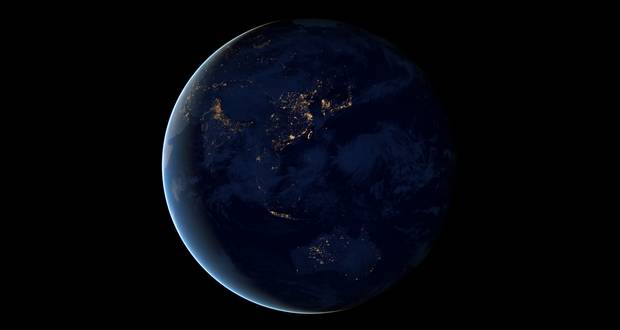1Supercontinents

As many as six supercontinents are thought to have formed and broken up prior to Pangaea. Roughly 400 million years pass between each repetition of the supercontinent cycle, which is currently causing the Pacific Ocean to shrink until yet another supercontinent will someday be formed. The oldest supercontinent on earth is Vaalbara which formed 2.7 to 3.6 billion years ago.
2Oxygen Catastrophe

Around 2.5 billion years ago, the Oxygen Catastrophe occurred, where the first microbes producing oxygen using photosynthesis created so much free oxygen that it wiped out most organisms on the planet because they were used to living in minimal oxygenated conditions
3Orange Sky

Before the Great Oxygenation Event which saw a rise in oxygen levels around 2.4 billion years ago, the earth’s atmosphere is thought to have originally been methane-rich. This would have given the sky anywhere from a purple to an orange tint due to hydrocarbon haze.
4Boring Billion

There is a period during Earth’s evolution where activity stalled which scientists dubbed ‘the boring billion’. Beginning roughly 1.7 billion years ago, the Earth became a slimy, near-static world of algae and microbes.
5Ocean Salinity

Salts do enter and form in the ocean, but they also leave it. Ocean salinity has been stable for billions of years. The two major processes capable of removing significant amounts of salt from the ocean are the formation of evaporites (rocks that form when restricted, salty water evaporates) and the sequestration of brine as groundwater on the continents. It's actually been proposed that the early ocean was saltier than today (maybe up to twice as salty). Salt was removed from the oceans over geologic time as the Earth cooled and the continents grew, providing more space favorable for salt/evaporite deposition and the formation of saline groundwater. It's been argued that modern-day salinity wasn't reached until relatively recently, perhaps playing a role in the origin and radiation of animal life (known as the Cambrian Explosion).
6Snowball Earth

Some scientists have proposed that earth froze completely about 650 million years ago. Proponents of the Snowball Earth hypothesis argue that it best explains a billion missing years in earth's rock layers. They argue that miles of ice eroded those rock layers and sent the sediment into the oceans where they were plunged back into the mantle to be recycled. There are also very few fossil layers before this period.
7Biological Big Bang

The Cambrian Explosion was a Biological Big Bang that happened between 500 and 250 million years ago. Life went from moving slowly on the seafloor without any predation to suddenly all the different ecologies that we find today. Some scientists believe that the evolution of vision triggered this evolutionary event.
Latest FactRepublic Video:
15 Most Controversial & Costly Blunders in History
8Mass Extinction

One of the prevailing theories for the cause of the Ordovician–Silurian mass extinction is a gamma-ray burst that struck the planet 450 million years ago and killed almost all life on Earth. Researchers speculate that a gamma-ray burst originated from a hypernova within 6,000 light-years of Earth. A 10-second burst would have stripped the Earth's atmosphere of half of its ozone almost immediately, exposing all life on earth to high levels of extreme ultraviolet radiation. Nearly 85% of marine species were wiped out.
9Length of a Day

400 million years ago there were 22 hours in a day and more than 400 days in a year and 900 million years ago, there were 18 hours in a day. Also every 13,000 years or so, it's winter in July in the northern hemisphere (and vice versa for the southern) due to earth axial wobble.
10Sharks

Sharks are older than trees. Evidence for the existence of sharks dates back to 450 million years ago and modern trees only appeared around 350 million years ago. The first sharks were not only small but were at the bottom of the food chain. Sharks only became apex predators 100 million years ago and did not take over until just 15 million years ago. Before that, a succession of other large marine predators either ate them, gave them stiff competition, or both.




